Throughout the growing season, many property owners in South Dakota encounter common lawn diseases such as rust, powdery mildew, leaf spot, and dollar spot. These diseases can cause significant damage to your lawn, leading to stunted growth, yellowing or browning of the grass blades, and reduced resistance to environmental stressors. Lawn diseases also tend to spread quickly, especially in warm and humid conditions. If you notice any of these lawn diseases on your turf, you should reach out to professionals to schedule curative treatments to stop these diseases in their tracks!
1. Rust
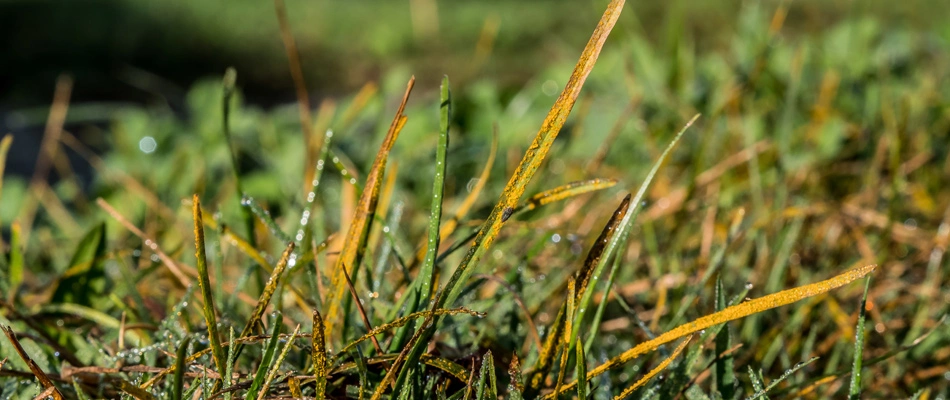
Rust is a fungal disease that typically appears as yellow, orange, or reddish-brown patches on the grass blades. As this disease progresses, the patches may merge and become more widespread, giving the lawn a rust-colored appearance. In severe cases, the affected grass blades may die off, leading to thinning of the lawn and bald spots. Rust is more likely to occur in lawns that are under a lot of stress, such as those that are poorly nourished, dehydrated, or located in areas with poor air circulation.
Rust spreads easily through contact with infected grass clippings or equipment. Because of this, it can proliferate throughout an entire lawn rather quickly. However, with prompt curative treatments from a professional lawn care company, it is possible to control this disease and prevent it from getting out of hand.
2. Powdery Mildew
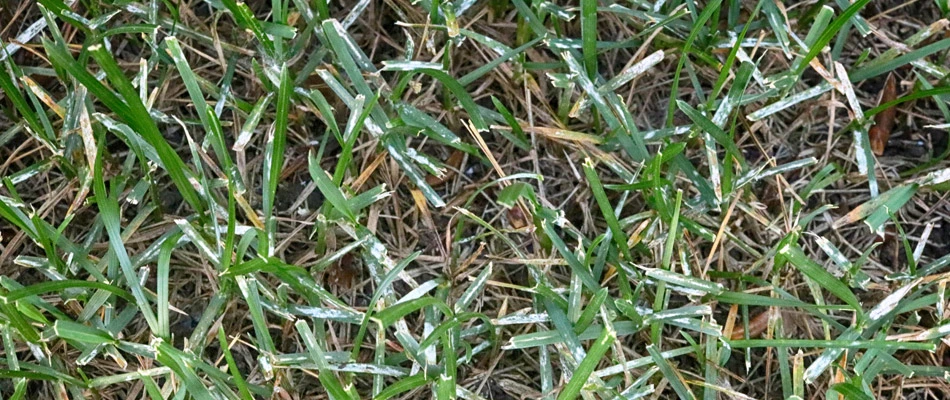
Powdery mildew is another lawn disease that is common in South Dakota. It appears as a white or gray powdery coating on the grass blades. Unlike rust, powdery mildew does not produce distinct patches but typically covers the entire surface of the grass. Powdery mildew primarily causes damage to a lawn by inhibiting photosynthesis, which can lead to stunted growth and yellowing or browning of the grass blades. It can also make your lawn less able to handle environmental stressors, such as drought or extreme temperatures. Just like with rust, the best way to address a powdery mildew infection is with curative treatments applied by a professional lawn care company.
The hot, humid months of July and August are often the toughest on grass because many lawn diseases thrive in these conditions.
3. Leaf Spot
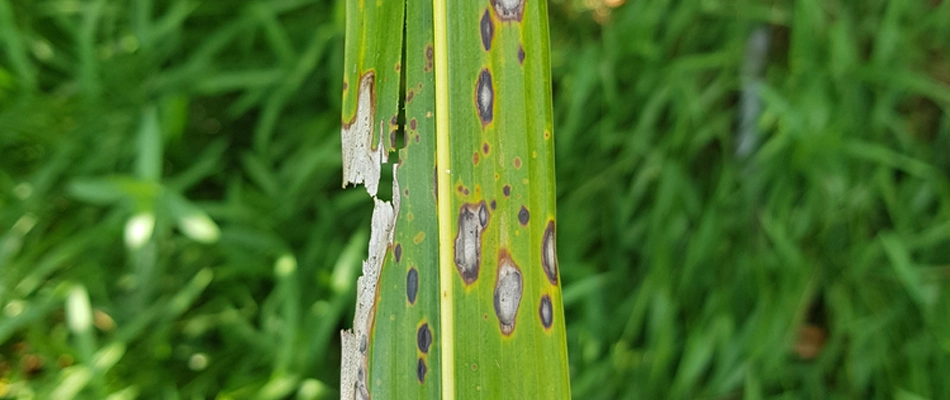
Leaf spot is another common lawn disease caused by fungal pathogens. It appears as circular or irregularly shaped spots on the blades of grass, which can range in color from yellow to brown or black. Leaf spot can cause significant damage to your lawn and make your grass more susceptible to drought, extreme temperatures, and even pest infestations. Like all lawn diseases, the best way to get rid of leaf spot is with a professional curative treatment.
4. Dollar Spot
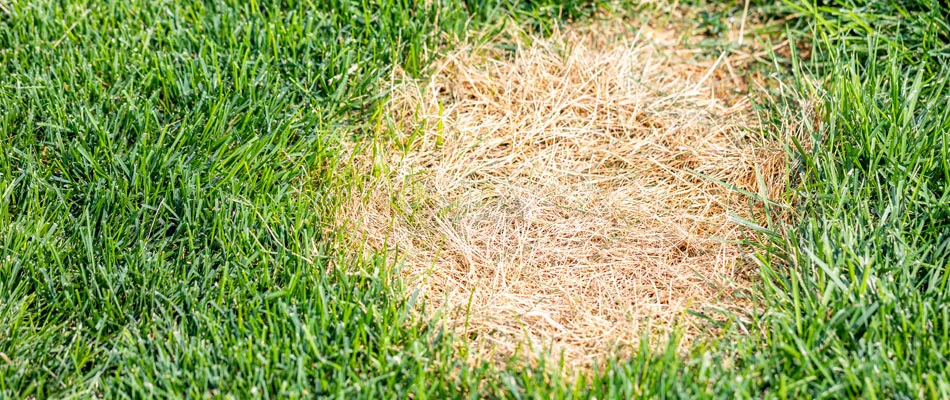
Dollar spot is a fungal disease that appears as small, circular patches of bleached grass blades that are about the size of a silver dollar. The patches may merge together to form larger areas of damage, and the affected blades of grass may develop a straw-colored band around their edges. Over time, the affected blades often turn fragile and wither, resulting in thin, patchy areas in the lawn.
Dollar spot thrives in warm, damp environments, so you’ll often see it in late spring or throughout the summer. And like rust, dollar spot can spread through direct contact with contaminated grass clippings or equipment such as lawn mowers and hedge trimmers. If this disease appears on your lawn, you should schedule curative treatments right away!
Give us a call today to schedule our lawn disease control service.
If you’ve been dealing with any of these lawn diseases at your home or business, you can turn to The Yard Barbers. We offer our lawn disease control service to property owners in Sioux Falls, Harrisburg, Tea, and nearby cities in South Dakota. We’ve been proudly serving this area since 2014 and we would love to add you to our long list of satisfied clients. Give us a call at (605) 370-5084 and schedule our lawn disease control service today!

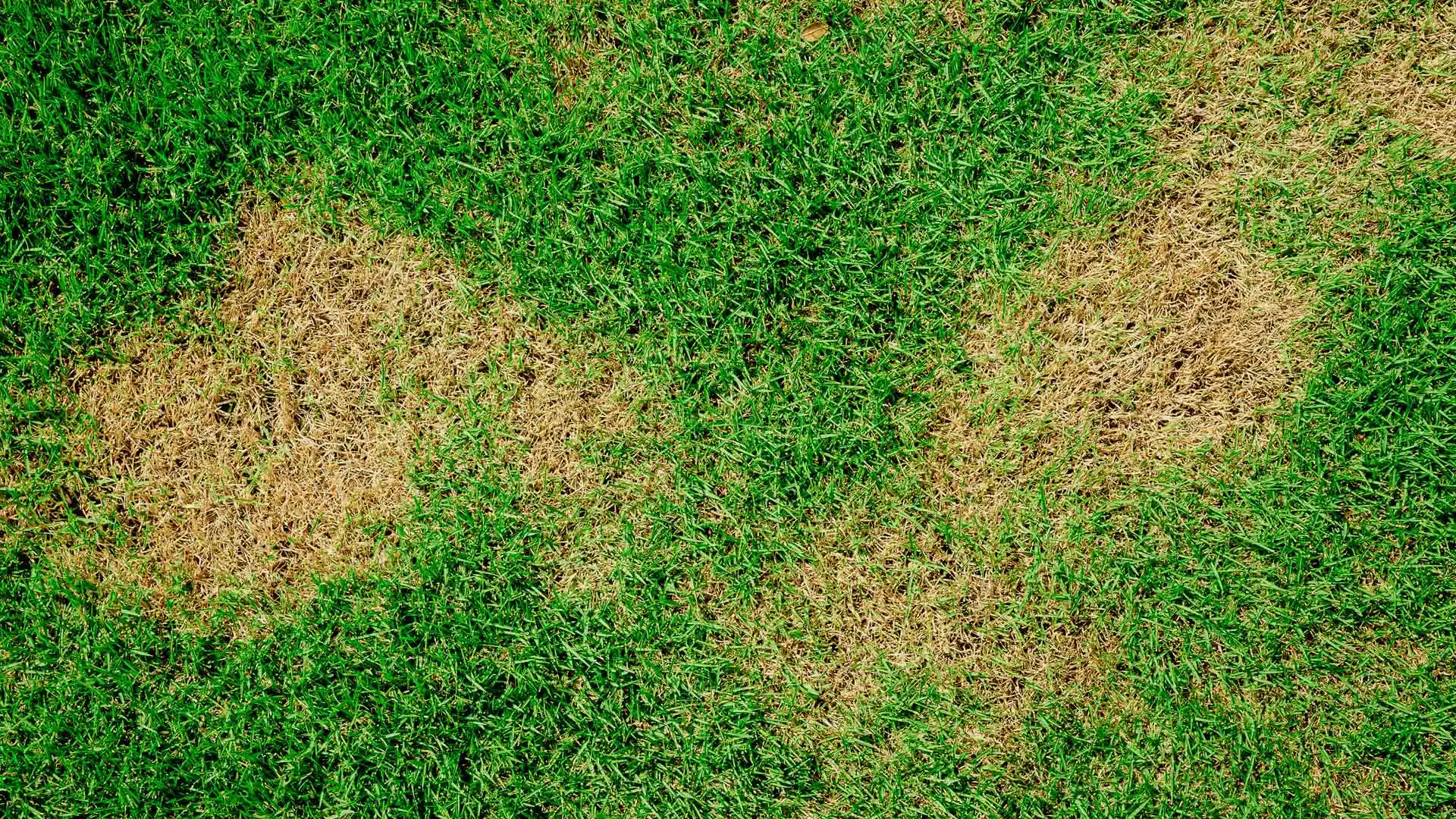


Comments (0)
Thanks for your comment!
Thanks for your feedback! Your comments have been successfully submitted! Please note, all comments require admin approval prior to display.
Error submitting comment!
There is a problem with your comment, please see below and try again.